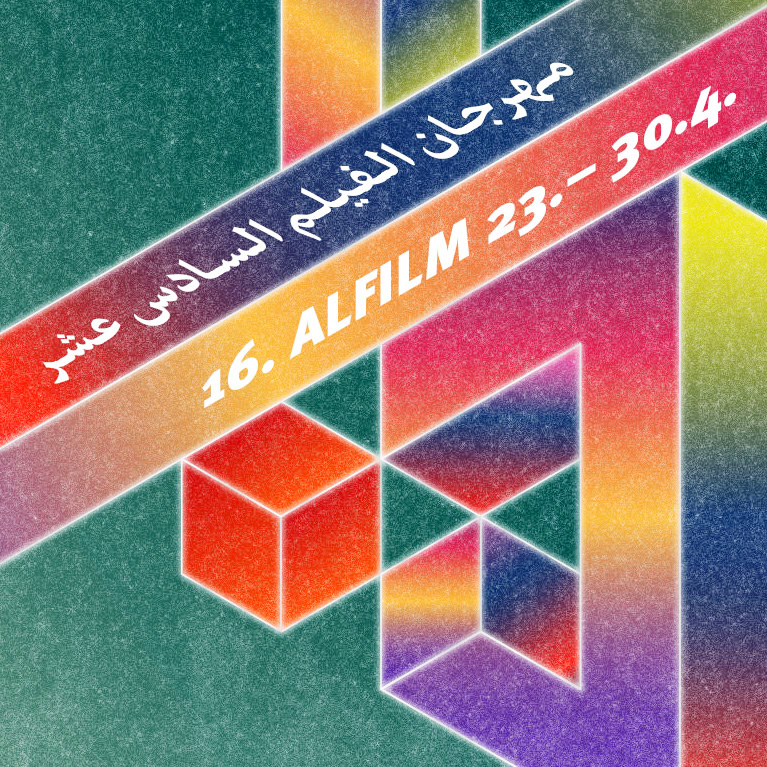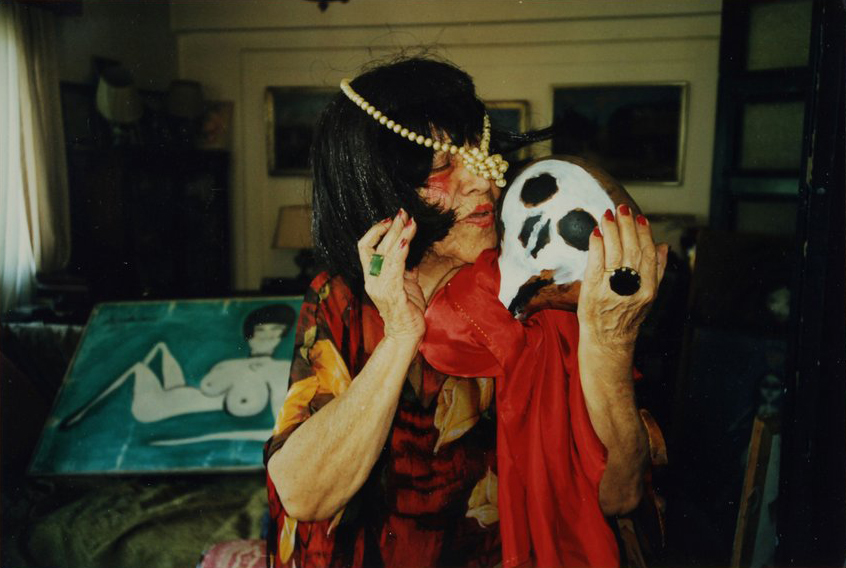|
|
|
|
|
|
A Day at the Movies
|

|
|
|
|
There is no shortage of film festivals in Berlin. Name a country or topic, and chances are high that there will be a film festival taking place correspondingly. Yes, there actually is a Lithuanian Film Festival, and yes, there actually are film festivals dedicated only to football, poetry, and other such things of beauty.
|
Today, it’s ALFILM’s turn. Berlin’s premier Arab Film Festival is already running in its 16th edition, with another intriguing program made up of feature films, short film programs (on grief, lightness, and militarization), panel discussions (on prison literature and parenthood), and a masterclass with Palestinian visual artist and filmmaker Kamal Aljafari, whose “A Fidai Film” is part of the spotlight program. This section, “Canceled Futures, Endless Pasts,” is made up of ten titles focusing on speculative fiction, in terms of Arab societies and their non-linear reckoning with colonialism or colonial pasts.
|
As with any film festival, I know it can be difficult to select which films to watch. So for this week’s newsletter, I’m giving you a few tips, should you be in Berlin:
|
TO A LAND UNKNOWN
The festival opens with Mahdi Fleifel’s “To A Land Unknown.” The spirit of Mahmoud Darwish and his poems on belonging, exile and displacement charge this impressively shot and acted film. Chatila and Reda, two Palestinian cousins, are stuck in Greece, biding their time committing petty crimes. Their plan is to get to Germany and open a café there, but in order to obtain new passports, they need money. “To A Land Unknown” masterfully portrays harsh and grim realities with a light touch and a lot of heart.
|
When I was in the critics jury at the Amman Film Festival in 2023 and saw LYD, it was pretty clear to me that this would be our eventual winner. I’m happy that Rami Younis and Sarah Ema Friedland’s documentary is finally showing at a festival in Germany. It’s a cinematic “What if…?”: What if the city of Lyd, which in the 1940s had an airport and train station that connected Palestine to the rest of the world, was never subjected to the horrors of the Nakba? What if it was never occupied? LYD is a one-of-a kind documentary, mixing archive footage, animation, and interviews to create a rich canvas of Palestinian history.
|
MOONDOVE
I can acknowledge that this Lebanese film is not for everyone due to its slow pacing and sparse narrative, but I was completely taken by director Karim Kassem’s observational and ruminative docufiction style. At first the film portrays village life in all its banalities, introducing the villagers one by one, and then gradually reveals the tension brewing under the surface due a serious water shortage which causes problems for everyone. “Moondove” deals with the chasm between tradition and modernity, and raises questions on class and community. It might be a challenge, but it rewards those who stick to the end.
|
|
While we have you here, clearly in the mood for film and culture, why don’t you catch up with the Diasporist’s coverage of the Berlinale 2025 or more recently, a deeper look at the Semiha Berksoy retrospective at the Hamburger Bahnhof? And in our latest “Seifenblasen” column, our contributing editor Ron Mieczkowski reviews Yukio Mishima’s “The Sailor Who Fell from Grace with the Sea”.
|
Managing Editor, the Diasporist
|
|
|
|
|
|
Schayan Riaz
|
|

|
|
|
“I feel as though the Berlinale missed a trick this year by not including a special program on Israel and Palestine. Would it have been such a tall order for Berlinale programmers to curate a special sidebar, with works like Jumanna Manna’s Foragers or From Ground Zero, a project overseen by Palestinian director Rashid Masharawi, made up of 22 short films from Gazan filmmakers? […] It would have been a powerful gesture to invite such works to the Berlinale, alongside Holding Liat and A Letter to David, in order to create a more complete picture and avoid programming blind spots, much like what the Berlinale was able to do when it came to Ukraine or Iran."
|
|
|
|
|
|
Sham Jaff
|
|

|
|
|
“Her canvases — often masonite panels or fabric sheets — featured self-portraits, her signature rouged cheeks staring back, alongside depictions of other family members and her artistic influences. She treated her paintings not as commodities but as vessels, surrounding herself with them and gifting them to friends, believing they carried the spirits of those she loved. If the Turkish Republic wanted to use her as proof of its success, it would have to contend with the fact that her art refused to play along.”
|
|
|
|
|
|
Ron Mieczkowski
|
|

|
|
"I don't believe that books can really give us hope. What they can do, though, without a doubt, is shake us to our very core. My last such experience took place two weeks ago, courtesy of Yukio Mishima’s The Sailor Who Fell from Grace with the Sea (1963), released in a new German translation by Ursula Gräfe.
|
|
The novel opens with an unforgettable scene that plumbs the psychological depths of childhood, of desire, and of repressed cravings: young Noboru, who has grown up without a father, has taken to watching his mother through a peephole in the closet between their rooms. When she brings home a new lover, a sailor, the boy witnesses the scene that becomes as embedded in his mind as ours. In the evening light, the two adults undress and stand naked in front of each other when “suddenly the full long wail of a ship’s horn surged through the open window,” the sailor turns to the window “with a sharp twist” and looks out to sea."
|
|
|
|
|
|
Ready to support our mission?
Donate to support our work.
|
|
|
|
|
|
Interested in learning more?
Follow us on social media to stay on top
of what we’re planning.
|
|
|
|
|
|
|
|
|
|
|
|